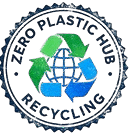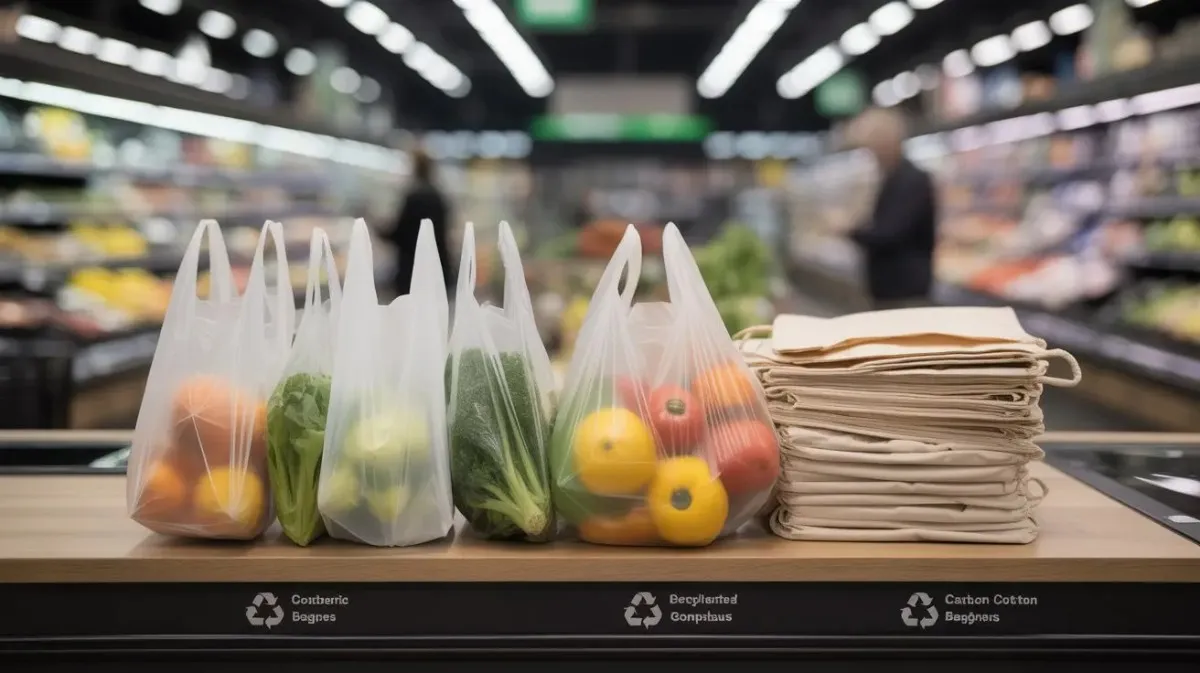Clear points on economic, environmental, and social impacts explain Why Plastic Bags Should Not Be Banned, with smarter eco-friendly alternatives.
Why Plastic Bags Should Not Be Banned?
The conversation around banning plastic bags is more complex than it seems. While concerns about pollution and waste are valid, a complete ban overlooks important factors such as cost-effectiveness, hygiene, and practical utility. Before rushing to prohibit them, it’s crucial to explore smarter approaches that balance environmental responsibility with everyday convenience. In this article, we highlight 6 compelling reasons why plastic bags should not be banned and why thoughtful policies may offer better solutions than outright prohibition.
Hygiene & Protection of Different Bag Types
| Bag Type | Protection Level | Risk Factors | Key Concerns | Safety Advantage |
|---|---|---|---|---|
| Cloth Tote (Unwashed) | Low | Harbors bacteria like E. coli and mold | Can contaminate groceries and fresh produce | Needs frequent washing to stay safe |
| Plastic Bag (Single-Use/Reusable) | High | Minimal bacterial growth | Rarely reused for raw food storage | Safer for handling food and quick disposal prevents contamination |
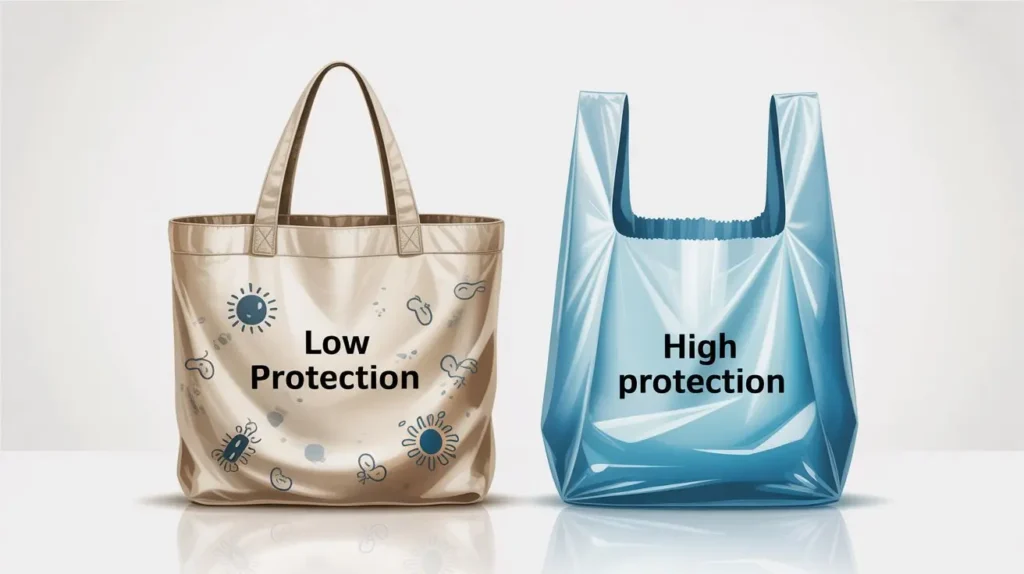
Why Should Plastic Bags Not Be Banned?
1. Smaller Carbon Footprint:
Life Cycle Assessments (LCAs) consistently show that lightweight plastic bags often produce fewer emissions than paper or cotton bags.
2. Paper Bags Are Resource-Heavy:
Paper manufacturing requires large amounts of water and energy and generates higher greenhouse gas emissions compared to plastic.
3. Cotton Bags Have High Impact:
Despite being marketed as eco-friendly, cotton totes must be reused hundreds of times to offset their heavy production footprint.
4. Plastic Bags Offer Quick Reuse Benefits:
A thin plastic bag reused as a trash liner or storage bag can quickly balance its environmental cost.
5. Fees Work Better Than Bans:
Policy data shows that bag fees reduce usage more effectively than bans, which often shift demand toward resource-intensive alternatives.
6. Smarter Management Over Prohibition:
The evidence suggests that responsible use, reuse, and recycling deliver greater environmental benefits than outright bans.
Substitution Effect of Plastic Bag Bans
| Situation | Plastic Usage | Emissions | Recyclability | Outcome |
|---|---|---|---|---|
| Before Ban | Grocery bags reused for trash, pet waste, or storage | Lower | Moderate (thin plastic can be recycled) | Plastic is reused in daily life |
| After Ban | Sales of thicker garbage bags rise | Higher (due to more plastic used) | Lower (thick bags are harder to recycle) | Total plastic consumption increases |
Economic Impact of Plastic Bag Bans
1. Job Losses: The plastic bag industry supports thousands of workers in manufacturing, packaging, and retail distribution. A sudden ban can lead to layoffs, factory closures, and unemployment.
2. Small Business Strain: Local shops and small retailers rely on low-cost plastic bags. Switching to paper or reusable alternatives means higher operating expenses, which many cannot easily afford.
3. Rising Consumer Costs: Alternatives like paper and cloth bags are more expensive, and these extra costs are often passed on to shoppers at checkout.
4. Disproportionate Burden on Low-Income Families: For households already struggling with tight budgets, even small increases in shopping costs add significant financial pressure.
5. Limited Environmental Return: Despite the economic disruption, bans do not always guarantee proportional environmental benefits, as substitution often offsets the gains.
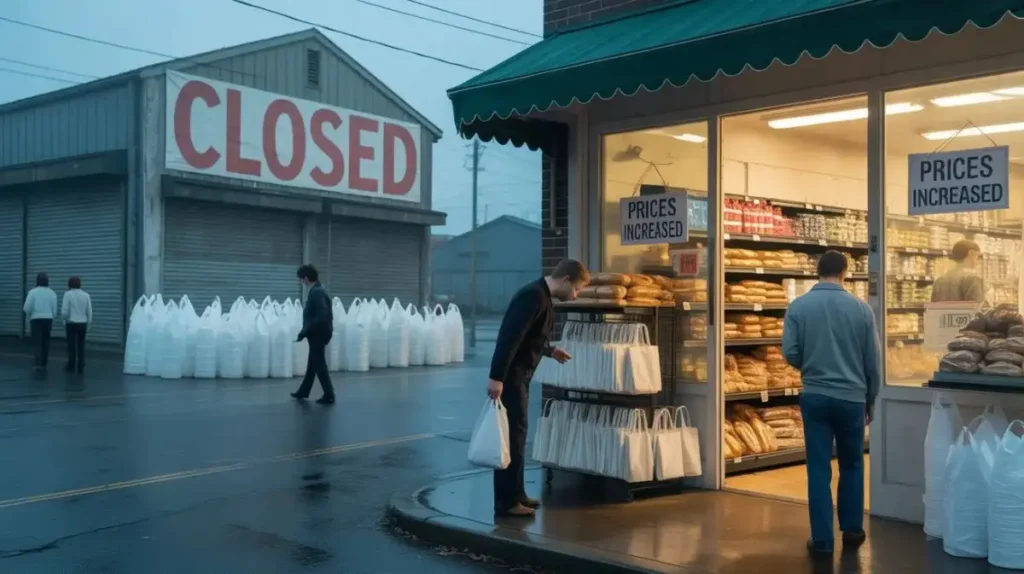
Alternatives to Bans – Smarter Solutions
Instead of outright bans, governments can pursue practical alternatives. Plastic bags should be managed, not banned.
Options include:
- Expanding plastic bag recycling rates through take-back programs.
- Applying small bag fees to reduce unnecessary use.
- Promoting consumer education around reuse and responsible disposal.
Policy design for reducing bag waste works best when it balances sustainability with affordability and convenience. Such approaches deliver results without disrupting industries or consumer habits.
Unintended Consequences of Plastic Bag Bans
Evidence from California and Australia shows that bans often produce side effects. After bans, sales of small plastic garbage bags rose significantly, leading to greater plastic use overall.
Paper bag consumption also spiked, driving up emissions and straining natural resources like water and forests. Cotton bags added their own burden due to high production impacts. This proves that banning plastic bags does not always reduce pollution—it may simply shift the problem elsewhere.
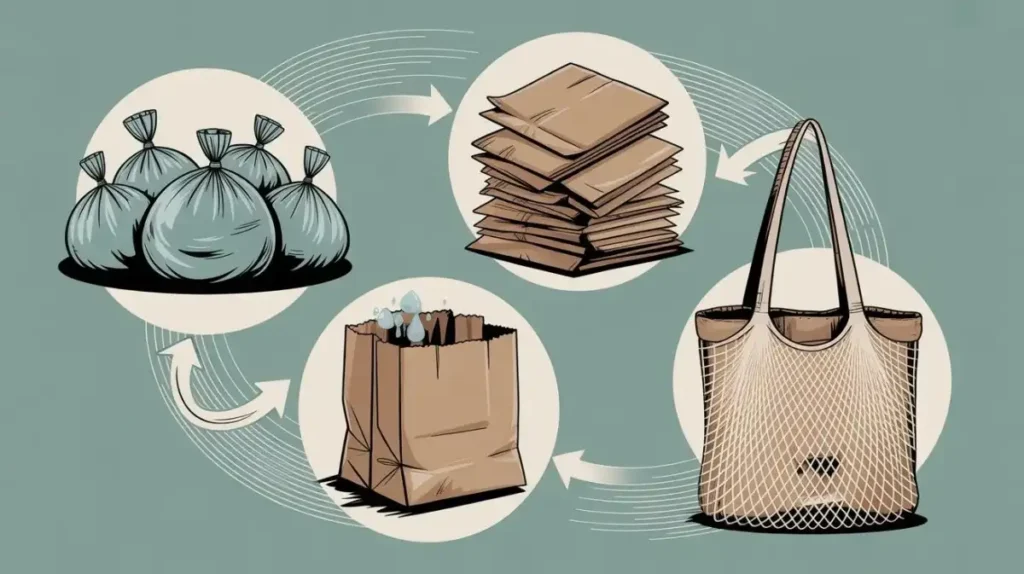
FAQS
Q1: Why should plastic bags not be banned?
Plastic bags should not be banned because they can be reused, are hygienic, and often have a smaller carbon footprint than paper or cotton alternatives.
Q2: Are paper bags really better than plastic?
Not exactly. Life Cycle Assessments indicate that paper bags demand higher energy and water use while producing more CO₂ than thin plastic bags.
Q3: What happens when plastic bags are banned?
Many shoppers end up purchasing heavier garbage liners, which actually require more plastic and cancel out the goals of the ban.
Q4: Do reusable bags spread bacteria?
Yes, cloth bags that are not washed can trap germs like E. coli along with mold growth, leading to possible hygiene concerns.
Q5: What is the economic impact of plastic bag bans?
Bans can cause job losses in manufacturing and higher costs for
Conclusion
In weighing why should plastic bags not be banned, the evidence shows that bans are an oversimplified response. Plastic bags, when reused and responsibly managed, can be less harmful than paper or cotton options. They also provide hygiene, affordability, and support jobs.
The smarter path is not prohibition, but responsible management—through recycling, bag fees, and consumer education. By focusing on better systems rather than blanket bans, societies can reduce plastic waste while preserving the everyday benefits plastic bags provide.
